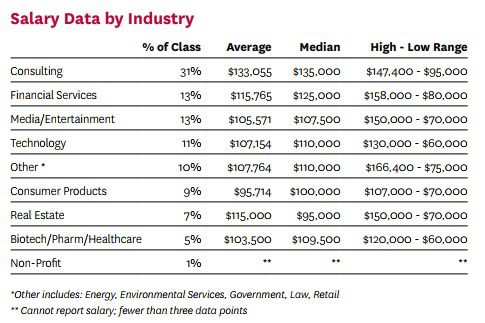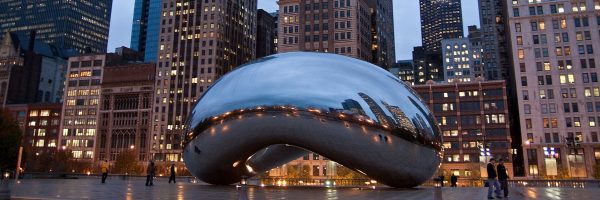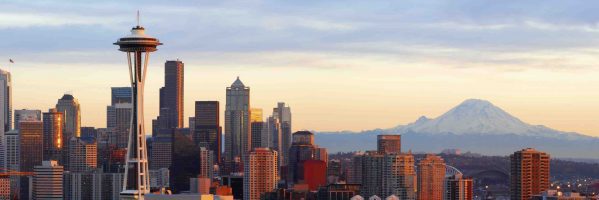Industry Expert Ellen Terry Helps to Shape Analytics Program at Houston Bauer

Ellen Terry, a lecturer at the University of Houston – C.T. Bauer College of Business is bringing her years of analytics experience into the classroom to help students—and the university—prepare for changing industry needs.
According to a 2016 report from the McKinsey Global Institute, one of the biggest challenges to integrating data and analytics into their operations is simply finding the right person for the job. Bauer decided to respond to the ever-growing need for talent in the analytics field, making expansions to their program and following guidance from industry experts like Terry.
Ellen Terry, who currently serves as a lecturer in Bauer’s Department of Accountancy & Taxation, brings her many years of experience to help Bauer shape a new program that can address the growing needs of the industry. She is a former vice president in the Data Science Group at JPMorgan chase, also having served for more than a decade at Microsoft. Working alongside Kaye Newberry, Professor and Department Chair, and Michael Newman, a clinical professor and Director of Accounting Programs, Terry has played a key role in developing new graduate level advanced analytics courses at the university.
“We decided to start with the end game,” Terry said. “What competencies do students need when they start with a company and get the opportunity to apply data science on the job? At JPMorgan, I had a good view of incoming capabilities … the biggest challenge I saw was the ability to comprehend holistic business architectures and integrate the intelligence pieces.”
In addition to addressing these challenges through coursework, students will also have the chance to work with Big Four accounting firms like KPMG and Ernst & Young. The application of analytics training, however, Terry believes, will be applicable to many fields even outside of accounting. “I can’t think of many job markets that won’t be impacted,” she said “It’s already happening with the big companies: banks, accounting firms, manufacturers, governments … are all busy transforming.”
Despite the coming changes in various markets and industries, Terry has no concerns about what’s to come. “I’d like to say this to the students,” she said. “You are very lucky to be living in this era—the future is going to be amazing!”
Getting Paid: Highest MBA Salaries in Los Angeles

The transmissions Los Angeles sends back out into the ether are those culled from the desires of its inhabitants but also from the people who romanticize it from the outside. As Joan Didion once wrote, “The city burning is Los Angeles’s deepest image of itself.”
Los Angeles is, admittedly, polarizing. While some may find the not-so-authentic atmosphere of Hollywood to be a downtrodden, morose landscape, the city’s expansive diversity and subtle natural wonder is enthralling in its own right. In a way, it feels alien and utterly familiar all at once.
It’s this kind of uncertainty that makes Los Angeles an ideal place to pursue a business degree for a prospective MBA open to a bit of ambiguity. While Silicon Valley up north has traditionally been romanticized as a place where we can re-write the rules, LA has been catching up recently—and fast. Los Angeles has embraced the tech boom in a big way, with many Valley bigwigs and new startups alike moving their operations to Silicon Beach on the West Side. With that in mind, the new era of LA innovation is creating some lofty starting salaries, particularly for MBA graduates.
The Highest Los Angeles MBA Salaries
UCLA Anderson School of Management
Recent UCLA Anderson graduates earned an average starting salary of $121,250 with a $25,000 signing bonus, according to statistics released by the school. Over 92 percent of Anderson MBAs received job offers within three months of graduation. The top five industries to employ Anderson MBAs are in tech (30.6 percent); financial services (21.6 percent); consumer products (13.4 percent); and consulting services (13.4 percent). Top employers for Anderson graduates include: Amazon, Deloitte, Bank of America Merrill Lynch, Google, Microsoft, Adobe, Amgen, BCG, EY, Mattel, McKinsey & Company, Nike, PwC, Apple, AT&T, Autodesk, Citigroup, Credit Suisse, Epson, Goldman Sachs, Intel, Sony Pictures Entertainment, and Disney, among others
UC Irvine Merage School of Business
MBA graduates from the UC Irivine Paul Merage School of Business posted record employment numbers for the school. Over 90 percent of recent MBAs received job offers within three months of graduation. The most popular industries to attract Merage graduates were in technology (33 percent), finance (31 percent), consulting (24 percent), and marketing/sales (27 percent). Merage graduates with tech industry positions earned starting salaries of $105,000; consulting, $100,000; consumer products, $85,000; and financial services, $100,000. Top employers included: Amazon, AT&T, Bank of America, Cisco, Dell, Deloitte, Gap, Hulu, Hyundai, IBM, Mattel, NBC Universal, Taco Bell, Twitter, and Volcom.
USC Marshall School of Business
According to employment statistics surveying the most recent USC Marshall School of Business MBA class, the average starting salary for Marshall graduates is $115,309 with a $23,431 signing bonus. The top three industries that employ Marshall graduates are within consulting (34 percent), where MBAs start at $132,000; marketing/sales (27 percent), where MBAs start at $99,497; and financial services (18 percent), where MBAs start at $112,087. Top employers of Marshall’s 2016 class include: Adobe, AT&T, Apple, Citigroup, Deloitte, Disney, Facebook, Film Roman, Google, Hewlett-Packard, Intel, Morgan Stanley, Johnson & Johnson, Samsung, Taco Bell, Warner Bros, Starbucks, PwC, Sony Pictures, Nestle, and PepsiCo, among others.

USC Marshall grad salaries, broken down by industry.
Pepperdine Graziadio School of Business and Management
Pepperdine Graziadio School of Business and Management graduates earned an average starting salary of $120,000, according to school statistics. Around 82 percent of Graziadio MBAs accepted job offers within three months of graduation.
Financial services, entertainment, technology, and consulting were the top industries to employ Graziadio MBAs.
For more information on the best Los Angeles MBA programs, check out our guide to the city. As well, learn more about which LA schools do not require GMAT or GRE scores here.
Getting Paid: Highest MBA Salaries in Chicago

Like most parts of the country, the U.S. heartland is undergoing a massive shift on all fronts, becoming more urbane, diverse, and open to outsiders than seemingly ever before.
Many communities are becoming increasingly diverse, attracting international residents at an unprecedented rate. Young, urban professional-types who once flocked to the coasts are now moving in droves to Midwestern cities, which were once dismissively filed under “fly-over territory.” Nowhere is this change more apparent than in the Windy City.
Chicago’s long been home to major players in media, education, finance, and food and beverage (shout-out to Giordano’s Deep Dish Pizza), but doing business in the city now also means something new. Like most major metropolitan areas, Chicago’s slowly dipping its toes into the tech game; the city’s home to Groupon, Grubhub, Orbitz, and Reverb.
So, take your pick, aspiring MBAs! When it comes to Chi-City, you’ll be a veritable kid in a candy store.
The 5 Highest Chicago MBA Salaries
Northwestern Kellogg School of Management
Northwestern Kellogg School of Management graduates earned average starting salaries between $106,000-$138,000, depending on their chosen industry. According to recent statistics, the four most popular industries to attract Kellogg MBAs were consulting (32.6 percent), where the starting salary hovers around $138,204 with a $29,375 signing bonus. MBAs in tech (22 percent) earned a starting salary of $119,713 with a $23,749 signing bonus. MBAs that specialize in consumer products (13.8 percent) earned an average starting salary of $106,052 with a $26,634 signing bonus. MBAs in financial services (12.8 percent) earned an average starting salary of $128,090 with a $32,100 signing bonus. Top employers of Kellogg graduates include: Adobe Systems, Amazon, Anheuser-Busch, Apple, Bain & Co, Bank of America Merrill Lynch, Boston Consulting Group, Cisco Systems, DaVita Healthcare Partners, Dell, Deloitte, Facebook, General Motors, Goldman Sachs, Google, JPMorgan Chase, Linkedin, Mars, McKinsey & Company, Microsoft, Nike, PepsiCo, among others
DePaul Kellstadt Graduate School of Business
Recent graduates from the DePaul Kellstadt Graduate School of Business posted record employment numbers for the school. According to an overview the school published, 92 percent of 2016 MBAs landed positions within 120 days of graduation. The average starting salaries for Kellstadt’s available MBA concentrations are as follows: Accountancy at $83,000; economics at $90,000; finance at $89,000; management at $83,000; marketing at $75,500; and real estate at $75,000. The most popular industries to attract Kellstadt graduates were accounting, financial services, manufacturing, health care, and consulting. Top employers include: Allstate, Bank of America Merrill Lynch, Boston Consulting Group, Deloitte, Deutsche Bank, GE Capital, General Mills, Google, Groupon, JPMorgan Chase, Microsoft, PwC, United Airlines, and Wilson Sporting Goods, among others.
Notre Dame’s Mendoza College of Business
According to statistics surveying the most recent MBA class, the average starting salary for Mendoza College of Business graduates is $105,000 with a $20,000 signing bonus. About 91 percent of MBAs received job offers within three months of graduation. The most popular industries to attract Mendoza MBAs are within tech (27.1 percent), financial services (18.8 percent), consumer products (14.6 percent), and consulting (11.5 percent). MBAs working in tech earned average starting salaries of around $110,000; financial services, $110,000; consumer products, $100,000; and consulting, $105,000. Top employers of Mendoza MBAs include: Deloitte, Procter & Gamble, PwC, Deutsche Bank, IBM, Discover, Allstate, IBM, Samsung, Amazon, American Airlines, ExxonMobil, Johnson & Johnson, AT&T, Kraft, Hershey, Heinz, Bank of America Merrill Lynch, Major League Soccer, United Airlines, General Mills, General Motors, Microsoft, GlaxoSmithKline, and Citibank, among others.
University of Chicago Booth School of Business
Chicago Booth School of Business graduates earned an average starting salary of $125,000, according to recent statistics. The top industries to attract Booth MBAs are financial services (36 percent), consulting (27.5 percent), and technology (16.7 percent). Booth MBAs working in financial services earn average starting salaries of $125,000 with a $40,000 signing bonus; consulting, $145,000 with a $25,000 signing bonus; technology, $125,000 with a $30,000 signing bonus. Top employers of Booth graduates include McKInsey & Company (7.1 percent), Boston Consulting Group (4.7 percent), Amazon (3.9 percent), Bain & Company (3.1 percent), Accenture (2.6 percent), Google (2.4 percent), Bank of America Merrill Lynch (2.2 percent), and PwC Strategy (2 percent).
University of Illinois at Chicago Gies College of Business
On average, Gies College of Business graduates can expect to start their careers in the $90,000 range with a $10,000 signing bonus. According to statistics supplied by the school, MBA grads have a 94 percent employment rate. The most popular industries are technology (20.3 percent), financial services (18.8 percent), consulting (15.6 percent), and consumer products (12.5 percent). Liautaud MBAs who took positions in tech started at $94,000; financial services, $87,857; consulting, $89,125; and consumer products, $95,800. Liautaud graduates work for a broad range of companies, but top employers include AT&T, Johnson & Johnson, Walt Disney, Amazon, Chrysler, Hewlett-Packard, Sears, Google, State Farm, City of Champaign, Bank of America, and Whirlpool Corporation.
Graduate With A Dual MBA Degree at Northwestern’s Kellogg School

When going for that MBA, why not just go for two graduate degrees? That’s possible at Northwestern University’s Kellogg School of Management.
The business school, tucked inside Chicago, offers two dual MBA programs. Some of its graduates have gone on to work for Amazon and Microsoft. Plus, living in Chicago is a bonus.
The Windy City has vibrant arts, food, and comedy scenes, as well as a growing number of traditional career opportunities. Though the state of Illinois is suffering financially, Chicago saw a jump in employment following the Great Recession. The city is also home to headquarters for some of the biggest banks in the country.
Really, isn’t deep-dish pizza all a person needs though? Candidates can enjoy some Chicago-style pizza (if they’re into that kind of thing) while studying hard to achieve that dual degree.
Masters of Science in Design Innovation (MMM)
According to the school, this program is the first of its kind. Graduates walk away with their Kellogg MBA—and a Masters of Science in Design Innovation from Segal Design Institute at the McCormick School of Engineering and Applied Science.
That’s a steal. Especially given that this takes no more than two years. Candidates who want to build a successful business with a strong focus on design should really benefit from this program. Some design tools students learn while at Kellogg include user-centered research methods, prototyping, and implementation.
But every student has a specific interest. The program’s electives allow participants to hone in on whatever skills they need to succeed. These courses can look like programming design or even whole-brain communication.
“The MMM program challenges me to be more dynamic: in thought, in understanding, and in action,” Kellogg student Vikram Raju said on the school’s website.
The Kellogg MMM is a full-time program, offering classes during both the day and evening.
JD/MBA Program
This program is tailored specifically to the business-savvy with an interest in law. The JD/MBA program offers graduates a Masters of Business Administration from Kellogg, as well as a Juris Doctor from the Northwestern School of Law.
Again, Kellogg set an example with this program: It’s the first kind in the U.S. Be it for someone who ultimately wants to do law or someone who wants to hold a unique set of business skills, the JD/MBA program uniquely positions its graduates for the real world. Law firms, corporations, and nonprofits look to Kellogg’s JD/MBA graduates. Some alumni even go onto elected office.
“This program attracts people who are leaders,” JD/MBA student Adina Lord said on the program’s website.
This program takes three years (one year more than the MMM), but it’s worth it. The average student takes five years to achieve these degrees separately.
While working toward the MBA, students can choose an expertise: accounting, economics, and marketing, among others. Then, there’s the legal background on top. And the practice is hands on.
While at Kellogg, students can work with Northwestern’s Entrepreneurship Law Center, Global Lab, or Venture Lab. All these resources give students experience they need to attract future employers. The Law Center connects students with small businesses, where they can give businesses legal and strategic consulting.
Deciding Which Seattle Marketing MBA Is Right for You

Seattle is, easily, one of America’s fastest growing cities. Just in one year, from 2015 to 2016, the city’s population increased by 21,000 people, according to The Seattle Times. That’s 57 people a day, on average.
It’s no surprise people are flocking to Seattle. Amazon, Nordstrom, and Starbucks have headquarters there—and Amazon has been busy hiring like crazy. Companies like Microsoft and Boeing are only contributing to this growth too. But beyond the economic and population growth, Seattle is beautiful. Famous for its lush mountains, Seattle provides a view of Mount Rainier from just about any point in the city.
Its progressive policies—like providing a $15 minimum wage and legalizing the use and sale of cannabis—also make the city appealing for young people who are curious about where to start their family or career.
It’s the perfect place to build a life—after that MBA you’ve been thinking about. Three programs, in particular, offer competitive marketing MBA programs. Perhaps they’ll land candidates a job in the tech industry where Seattle employees are the “second-best paid techies,” in the U.S, according to The Seattle Times.
Seattle MBA Programs with a Focus in Marketing
Albers School of Business and Economics — Seattle University
The Albers School of Business and Economics dates back to 1976 when the school was renamed to honor the contribution of Eva and George Albers. Since then, it’s garnered a number of accolades. Most recently, The Princeton Review included the school in its 2017 “Best Business Schools” publication. Albers offers different MBA programs, including an Early Career MBA, a Professional MBA, and a Leadership Executive MBA.
The Professional MBA program can be customized to meet a student’s needs. Two thirds of the required 54 credits consist of electives, so candidates can choose the classes they need to meet their career goals. Candidates can make marketing their discipline. The school offers 12 marketing electives. This program allows students to take two of the school’s 10 graduate certificates as part of their electives. Marketing is on that list.
The business school also gives specialized master degrees for accounting, business analytics, and finance. Its Master of Science in Business Analytics (MSBA) can give marketing candidates a competitive edge in learning data skills.
Foster School of Business — University of Washington
The Foster School of Business at the University of Washington has been around for 100 years. Yep, since 1917. In 2007, it took up the Foster name in honor of Michael G. Foster, who donated $36.5 million through his foundation.
This money went toward building the campus’ state-of-the-art facilities, a major perk for a public university. And this devotion the school has for its students has proven successful: Nearly 3,000 alumni have founded companies. U.S. News World & Report ranked its full-time MBA program number one overall in the Northwest and number nine overall among public universities.
The curriculum ensures candidates understand every facet to business: accounting, finance, strategy, and, of course, marketing. But the second year of the full-time program allows students to hone in on their chosen skill. For marketing MBAs, the program offers 12 electives, including one exclusively on data.
Seattle Pacific University School of Business, Government and Economics
The Seattle Pacific University School of Business, Government and Economics started teaching business in 1977. Its Christian background influences the way the school teaches business. Ethics and service are major themes.
The MBA program features seven emphases: cybersecurity, data analytics, finance, human resources management, information systems management, management, and social and sustainable enterprise. Marketing is a required skill in the curriculum. Marketing is included in the pre-MBA courses required to obtain the degree. For advanced courses, marketing analysis is required. The data analytics emphasis is a good place for those interested in marketing to look into. Data is key in marketing. Numbers tell a bigger story than one might imagine.
Getting Paid: The Highest MBA Salaries in Philadelphia

Philadelphia: The City of Brotherly Love—or shove, depending on which out-of-town sports jersey you might be wearing out in public.
